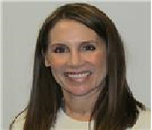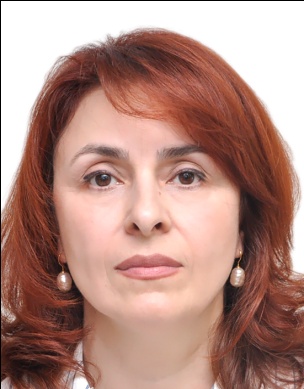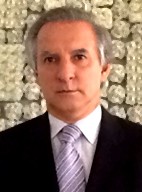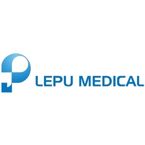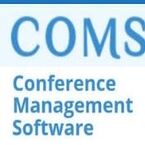Welcome Message
It is our great pleasure to welcome you to the 9th World Congress on Cardiology and Heart Failure, taking place on February 09-10, 2026, in London, UK. This prestigious gathering brings together leading cardiologists, researchers, healthcare professionals, and industry experts from around the globe to share knowledge, exchange ideas, and explore the latest advancements in the field of cardiology and heart failure management.
Over the course of two days, the congress will provide a dynamic platform for insightful scientific sessions, keynote presentations, interactive discussions, and networking opportunities, fostering collaboration and innovation to improve cardiovascular care worldwide.
We warmly invite you to join us in London to be a part of this impactful event, where science meets practice and new horizons in cardiology are explored.
We look forward to your active participation and valuable contributions to making the Heart Failure Conference 2026 a resounding success.
About the Conference
The 9th World Congress on Cardiology and Heart Failure, to be held on February 09-10, 2026, in London, United Kingdom, is a leading international event dedicated to the advancement of cardiovascular medicine and heart failure management. This congress provides a unique platform for cardiologists, cardiac surgeons, researchers, healthcare professionals, academicians, and industry experts to come together and share the latest knowledge, research findings, and clinical experiences.
The conference will cover a wide range of topics, including the pathophysiology of heart failure, advanced diagnostic techniques, innovative treatment strategies, interventional cardiology, cardiac imaging, regenerative therapies, and emerging technologies in cardiovascular care. Attendees will have the opportunity to participate in keynote presentations by world-renowned experts, interactive panel discussions, hands-on workshops, and scientific sessions that highlight the most recent advancements in cardiology and heart failure research.
London, the capital city of the United Kingdom, is a vibrant and historic metropolis known for its rich cultural heritage, iconic landmarks, and world-class infrastructure. As one of the world’s leading centers for finance, education, healthcare, and research, London offers a perfect backdrop for international conferences and professional gatherings.
Why Attend the 9th World Congress on Cardiology and Heart Failure
Key benefits of attending include:
-
Expert Insights: Gain knowledge from keynote lectures and presentations by world-renowned cardiology specialists and thought leaders.
-
Cutting-Edge Research: Learn about the latest advancements in diagnostics, therapeutics, interventional cardiology, cardiac imaging, regenerative medicine, and emerging technologies.
-
Interactive Learning: Participate in workshops, panel discussions, and case study sessions that encourage active engagement and practical learning.
-
Networking Opportunities: Connect with international professionals, researchers, and industry partners to foster collaborations and exchange ideas.
-
Professional Development: Enhance your expertise, earn continuing education credits, and stay updated on evidence-based practices in cardiovascular medicine.
-
Exposure to Innovation: Explore the latest medical devices, technologies, and solutions in the dedicated exhibition area.
-
Cultural Experience: Enjoy the vibrant city of London, combining professional growth with cultural and leisure activities.
The 9th World Congress on Cardiology and Heart Failure is designed to bring together a diverse group of professionals and stakeholders in cardiovascular medicine. The conference is ideal for:
-
Cardiologists and cardiac surgeons
-
Heart failure specialists and clinicians
-
Cardiovascular researchers and academicians
-
Physicians and general practitioners with an interest in heart disease
-
Cardiac nurses, technicians, and allied healthcare professionals
-
Clinical and laboratory scientists
-
Pharmaceutical and medical device industry professionals
-
Healthcare administrators and policy makers
-
Students, trainees, and early-career researchers in cardiology and related fields
By targeting this broad yet specialized audience, the congress fosters interdisciplinary collaboration, knowledge exchange, and professional networking, creating a platform for advancing cardiovascular care globally.
Sessions and Tracks
Track 01. Advanced Heart Failure Management
Heart failure is a chronic condition where the heart cannot pump blood efficiently, leading to fatigue, fluid retention, and reduced quality of life. Management combines medications, devices, lifestyle modifications, and emerging therapies.
Key Highlights:
-
Pharmacological therapy: ACE inhibitors, beta-blockers, diuretics, and mineralocorticoid receptor antagonists improve survival.
-
Device therapy: Implantable cardioverter-defibrillators and cardiac resynchronization therapy optimize cardiac function.
-
Lifestyle modification: Low-sodium diet, exercise, and weight monitoring reduce hospitalizations.
-
Patient education: Recognizing symptoms and medication adherence are critical.
-
Emerging strategies: Gene therapy, regenerative medicine, and metabolic-targeted drugs show promise.
Comprehensive heart failure management improves patient outcomes and reduces long-term complications.
Track 02. Artificial Intelligence in Heart Failure Diagnosis
Artificial intelligence is increasingly used to improve the early detection, diagnosis, and monitoring of heart failure. AI models analyze imaging, electrocardiograms, and patient data to enhance precision.
Key Highlights:
-
Predictive analytics: AI predicts the risk of decompensation and hospitalization.
-
Imaging interpretation: Echocardiograms and MRIs are analyzed more accurately and faster.
-
Personalized care: AI provides individualized treatment recommendations based on risk scores.
-
Remote monitoring: Smart devices track vitals and alert clinicians to changes.
-
Decision support: AI assists physicians in optimizing therapy and predicting outcomes.
AI integration in heart failure care improves diagnostic accuracy and enables timely, personalized interventions.
Track 03. Biomarkers in Heart Failure
Biomarkers are crucial for diagnosing, monitoring, and predicting outcomes in heart failure. They complement imaging and clinical evaluation.
Key Highlights:
-
Natriuretic peptides: BNP and NT-proBNP indicate heart failure severity.
-
Cardiac troponins: Detect ongoing myocardial injury.
-
Inflammatory markers: CRP and interleukins reflect systemic inflammation.
-
Renal biomarkers: Help detect cardiorenal syndrome.
-
Therapeutic monitoring: Biomarkers guide medication titration and therapy response.
Using biomarkers improves early detection, guides personalized therapy, and reduces complications in heart failure management.
Track 04. Heart Failure with Preserved Ejection Fraction
Heart failure with preserved ejection fraction (HFpEF) is a form where the heart pumps normally but has impaired relaxation. Management focuses on symptom relief and underlying comorbidities.
Key Highlights:
-
Diagnosis: Echocardiography and biomarkers help differentiate HFpEF from reduced ejection fraction.
-
Management: Treat hypertension, diabetes, and obesity to improve outcomes.
-
Medication: Diuretics, mineralocorticoid receptor antagonists, and novel drugs may help.
-
Lifestyle: Exercise and dietary interventions reduce symptoms.
-
Prognosis: Early identification and intervention improve quality of life and survival.
HFpEF remains challenging, requiring individualized management and ongoing research for better therapies.
Track 05. Cardiac Resynchronization Therapy in Heart Failure
Cardiac resynchronization therapy (CRT) is a device-based treatment for patients with advanced heart failure and ventricular dyssynchrony. It improves heart efficiency, symptoms, and survival.
Key Highlights:
-
Indications: Patients with reduced ejection fraction, widened QRS complex, and persistent symptoms despite optimal medical therapy.
-
Mechanism: CRT coordinates contraction of the left and right ventricles to improve cardiac output.
-
Clinical benefits: Reduces hospitalization, improves exercise tolerance, and enhances quality of life.
-
Device monitoring: Remote follow-up ensures optimal pacing and detects complications early.
-
Future developments: Integration with AI allows predictive modeling for therapy response.
CRT remains a cornerstone therapy for select heart failure patients, combining mechanical support with advanced monitoring technologies.
Track 06. Telemonitoring and Remote Care in Heart Failure
Telemonitoring uses technology to monitor heart failure patients remotely, detecting early signs of decompensation and enabling timely interventions.
Key Highlights:
-
Vital tracking: Blood pressure, heart rate, weight, and oxygen saturation monitored at home.
-
Early intervention: Alerts for worsening symptoms reduce emergency visits and hospitalizations.
-
Patient engagement: Encourages adherence to medications and lifestyle modifications.
-
AI integration: Predictive algorithms analyze trends to forecast heart failure exacerbations.
-
Outcome improvement: Reduces morbidity, enhances quality of life, and lowers healthcare costs.
Telemonitoring transforms heart failure care by combining real-time monitoring with predictive analytics to prevent complications.
Track 07. Heart Failure and Renal Dysfunction
Heart failure and kidney disease frequently coexist, creating complex challenges in management due to overlapping pathophysiology.
Key Highlights:
-
Cardiorenal syndrome: Impaired heart function leads to reduced kidney perfusion and fluid retention.
-
Medication management: Balancing diuretics, ACE inhibitors, and other therapies is crucial.
-
Monitoring: Regular assessment of renal function and electrolytes prevents complications.
-
Lifestyle interventions: Sodium restriction, fluid management, and dietary adjustments are vital.
-
Emerging therapies: Novel drugs targeting both cardiac and renal protection improve outcomes.
Effective management of heart failure with renal dysfunction requires multidisciplinary care, balancing cardiac support and renal preservation.
Track 08. Artificial Intelligence in Heart Failure Prognosis
Artificial intelligence enhances risk assessment and outcome prediction in heart failure patients by analyzing large datasets.
Key Highlights:
-
Predictive modeling: AI identifies patients at high risk of hospitalization or mortality.
-
Treatment optimization: Suggests personalized therapeutic strategies based on patient data.
-
Imaging integration: Combines echocardiography, MRI, and biomarkers for accurate prognosis.
-
Remote monitoring: AI evaluates data from wearable devices for early alerts.
-
Research implications: Enables development of novel interventions and clinical trials targeting high-risk populations.
AI is reshaping heart failure prognosis by providing actionable insights, personalized care, and timely interventions.
Track 09. Novel Pharmacological Therapies in Heart Failure
Recent advances in pharmacology have introduced new therapies that improve survival, reduce hospitalizations, and enhance quality of life in heart failure patients.
Key Highlights:
-
Sodium-glucose cotransporter 2 inhibitors: Improve cardiac outcomes beyond glycemic control.
-
Angiotensin receptor-neprilysin inhibitors: Reduce mortality and hospitalizations in reduced ejection fraction heart failure.
-
Selective myosin modulators: Enhance cardiac contractility without increasing oxygen demand.
-
Anti-inflammatory agents: Target systemic inflammation contributing to heart failure progression.
-
Tailored therapy: Personalized medication combinations based on patient profile optimize outcomes.
Emerging pharmacological treatments are reshaping heart failure management by addressing multiple pathophysiological pathways and improving patient prognosis.
Track 10. Acute Decompensated Heart Failure
Acute decompensated heart failure (ADHF) is a sudden worsening of chronic heart failure, requiring urgent medical intervention.
Key Highlights:
-
Triggers: Infections, arrhythmias, uncontrolled hypertension, and medication non-adherence.
-
Clinical features: Dyspnea, edema, fatigue, and pulmonary congestion.
-
Management: Rapid diuresis, vasodilators, inotropes, and supportive care.
-
Monitoring: Continuous hemodynamic and renal function assessment is crucial.
-
Prevention: Patient education and early recognition of symptoms reduce recurrence.
Prompt recognition and management of ADHF are essential to prevent complications and improve survival rates.
Track 11. Heart Failure with Preserved Ejection Fraction Challenges
Heart failure with preserved ejection fraction (HFpEF) poses diagnostic and therapeutic challenges due to heterogeneity in pathophysiology.
Key Highlights:
-
Diagnosis: Echocardiography and biomarkers aid in differentiating HFpEF from other cardiac conditions.
-
Comorbidities: Hypertension, diabetes, obesity, and atrial fibrillation complicate management.
-
Symptom management: Diuretics relieve congestion; exercise and lifestyle modification improve functional status.
-
Novel therapies: Clinical trials explore SGLT2 inhibitors, mineralocorticoid receptor antagonists, and personalized medicine.
-
Prognosis: Early identification and multidisciplinary management enhance quality of life and reduce hospitalizations.
Addressing HFpEF requires individualized care focusing on underlying causes and symptomatic improvement.
Track 12. Mechanical Circulatory Support in Advanced Heart Failure
Mechanical circulatory support devices provide lifesaving therapy for patients with end-stage heart failure.
Key Highlights:
-
Types of devices: Left ventricular assist devices and total artificial hearts.
-
Indications: Severe heart failure refractory to medical therapy, bridge to transplant, or destination therapy.
-
Clinical benefits: Improved survival, functional capacity, and quality of life.
-
Complications: Thrombosis, infection, and device malfunction require careful monitoring.
-
Future directions: Integration with AI for device optimization and predictive maintenance.
Mechanical support represents a critical intervention for advanced heart failure patients, bridging gaps to transplantation or providing long-term therapy.
Track 13. Pulmonary Hypertension in Heart Failure
Pulmonary hypertension frequently complicates heart failure, increasing morbidity and mortality. Early recognition and targeted therapy are essential.
Key Highlights:
-
Pathophysiology: Increased pulmonary vascular resistance secondary to left heart disease.
-
Symptoms: Dyspnea, fatigue, and exercise intolerance.
-
Diagnosis: Echocardiography, right heart catheterization, and biomarkers.
-
Treatment: Vasodilators, diuretics, oxygen therapy, and management of underlying heart failure.
-
Prognosis: Early detection and treatment improve functional capacity and survival.
Addressing pulmonary hypertension in heart failure requires a multidisciplinary approach to optimize outcomes and reduce complications.
Track 14. Arrhythmias in Heart Failure
Arrhythmias are common in heart failure and contribute to symptom worsening, hospitalizations, and sudden cardiac death.
Key Highlights:
-
Types: Atrial fibrillation, ventricular tachycardia, and conduction abnormalities.
-
Impact: Increased risk of thromboembolism, stroke, and mortality.
-
Diagnosis: Electrocardiogram, Holter monitoring, and electrophysiological studies.
-
Management: Rate/rhythm control, anticoagulation, device therapy, and ablation.
-
Monitoring: Continuous assessment and AI-assisted prediction improve patient safety.
Effective arrhythmia management in heart failure is critical to prevent complications and enhance long-term outcomes.
Track 15. Renal Dysfunction and Cardiorenal Syndrome
Heart failure often leads to renal impairment, creating a vicious cycle that complicates management.
Key Highlights:
-
Pathophysiology: Reduced renal perfusion and neurohormonal activation.
-
Clinical challenges: Fluid overload, electrolyte imbalance, and medication adjustments.
-
Monitoring: Regular renal function tests and electrolyte checks.
-
Therapies: Diuretics, ACE inhibitors, and SGLT2 inhibitors balance cardiac and renal needs.
-
Outcome improvement: Early detection and integrated management reduce morbidity.
Understanding the cardiorenal interplay is crucial for optimizing treatment strategies in heart failure patients.
Track 16. Myocardial Remodeling and Fibrosis
Heart failure progression involves structural and functional changes in the myocardium, including remodeling and fibrosis.
Key Highlights:
-
Mechanism: Chronic pressure/volume overload triggers myocyte hypertrophy and extracellular matrix deposition.
-
Clinical impact: Reduced contractility, arrhythmias, and worsening heart failure.
-
Diagnosis: Imaging techniques such as MRI and echocardiography assess fibrosis.
-
Therapeutic targets: ACE inhibitors, beta-blockers, and novel antifibrotic agents.
-
Prognosis: Early intervention slows remodeling, improving survival and functional status.
Targeting myocardial remodeling is a cornerstone in preventing heart failure progression.
Track 17. Lifestyle Interventions in Heart Failure
Lifestyle modification complements medical therapy, reducing hospitalizations and improving quality of life.
Key Highlights:
-
Diet: Low-sodium, fluid management, and heart-healthy nutrition.
-
Exercise: Tailored cardiac rehabilitation improves functional capacity.
-
Weight management: Monitoring weight prevents fluid retention episodes.
-
Smoking and alcohol: Cessation improves cardiac outcomes.
-
Patient education: Awareness of symptoms, medication adherence, and self-care strategies.
Lifestyle interventions empower patients, enhancing long-term outcomes in heart failure management.
Track 18. Heart Transplantation in Advanced Heart Failure
Heart transplantation remains the definitive therapy for end-stage heart failure refractory to other treatments.
Key Highlights:
-
Indications: Severe heart failure with poor prognosis despite maximal therapy.
-
Evaluation: Multidisciplinary assessment including comorbidities and psychosocial factors.
-
Surgical procedure: Orthotopic transplantation restores cardiac function.
-
Post-transplant care: Immunosuppression, infection monitoring, and lifestyle management.
-
Outcomes: Improved survival, functional capacity, and quality of life with careful follow-up.
Heart transplantation offers hope for patients with advanced heart failure, combining surgical expertise and lifelong care.
Track 19. Coronary Artery Disease and Heart Failure
Coronary artery disease (CAD) is a leading cause of heart failure, resulting from reduced blood flow to the myocardium, which impairs cardiac function over time. Understanding the link between CAD and heart failure is essential for prevention and management.
Key Highlights:
-
Pathophysiology: Atherosclerotic plaque formation leads to ischemia, myocardial infarction, and eventual left ventricular dysfunction.
-
Symptoms: Chest pain, shortness of breath, fatigue, and fluid retention.
-
Diagnosis: Coronary angiography, echocardiography, and stress testing identify CAD-related heart failure.
-
Treatment: Revascularization via percutaneous coronary intervention or bypass surgery, along with optimal medical therapy.
-
Prevention: Lifestyle modifications, cholesterol management, blood pressure control, and antiplatelet therapy reduce progression.
Addressing CAD effectively helps prevent heart failure development and improves long-term cardiac outcomes through timely interventions and comprehensive care.
Track 20. Exercise and Cardiac Rehabilitation in Heart Failure
Exercise and structured cardiac rehabilitation programs are vital for improving functional capacity, symptoms, and quality of life in heart failure patients.
Key Highlights:
-
Aerobic exercise: Improves oxygen utilization, endurance, and cardiac output.
-
Resistance training: Strengthens muscles, supporting daily activities and overall health.
-
Supervised programs: Reduce risk of complications while ensuring proper intensity and safety.
-
Patient education: Encourages adherence, lifestyle modification, and symptom monitoring.
-
Outcome improvement: Enhances quality of life, reduces hospitalizations, and may improve survival rates.
Integrating exercise and cardiac rehabilitation into heart failure care empowers patients to manage their condition actively and improves overall outcomes.
Market Analysis Report
The global market for cardiology and heart failure has shown consistent growth, driven by the rising prevalence of cardiovascular diseases and an aging population. The heart failure drug market alone was valued at approximately USD 8.9 billion in 2024 and is projected to reach USD 31.5 billion by 2034, reflecting a strong demand for innovative therapies. Simultaneously, the market for heart failure treatment devices, including left ventricular assist devices and advanced cardiac imaging tools, has expanded steadily, offering clinicians more options for managing complex cardiac conditions.
Regionally, North America has maintained a leading position in the cardiology market due to high healthcare expenditure, well-established medical infrastructure, and greater awareness of cardiovascular health. Meanwhile, the Asia-Pacific region, including India, is witnessing the fastest growth, fueled by lifestyle changes, urbanization, and increasing incidence of heart disease. India’s cardiac medication sales, for example, have surged by over 50% between 2020 and 2025, highlighting the growing burden of cardiovascular diseases in the country and the need for better diagnostics, therapies, and preventive care.
Key drivers for market expansion include advancements in medical technology, increased investment in research and development, and rising demand for minimally invasive and regenerative treatment options. The industry also presents significant opportunities for collaboration between pharmaceutical companies, medical device manufacturers, and healthcare providers to address unmet needs in heart failure management. Overall, the cardiology and heart failure market remains dynamic, with sustained growth expected as awareness, innovation, and access to healthcare continue to improve worldwide.
-
American Heart Association
-
European Society of Cardiology
-
Heart Failure Society of America
-
International Society for Heart and Lung Transplantation
-
World Heart Federation
-
Society for Cardiovascular Angiography and Interventions
-
Indian Heart Association
-
Cardiological Society of India
-
British Cardiovascular Society
-
Asian Pacific Society of Cardiology
-
Canadian Cardiovascular Society
-
Participants will receive a Certificate of Participation recognizing their contribution to the congress.
-
Dedicated speaker pages will be created on the conference website to highlight presenting experts.
-
Opportunities for networking with global leaders and renowned professionals in cardiology and heart failure.
-
Complimentary breakfast, lunch, and refreshments will be provided for the full two days of the conference.
-
Young Researcher Award and Best Poster Award to encourage and recognize outstanding work by early-career researchers.
-
Submitted abstracts will be published in a high impact factor journal with a unique DOI number for reference and citation.
-
Clinic or organization name/logo will be showcased in the conference proceedings book and on the conference website, providing excellent visibility and recognition.
Abstract Submission and Registration Deadlines
-
Abstract Submission Deadline: December 09, 2025
-
Early Registration Deadline: September 09, 2025
-
Standard Registration Deadline: February 09, 2026
Conference Dates: February 09-10, 2026 | London, United Kingdom
We encourage all participants to submit their abstracts before the deadline and complete their registration in advance to secure their participation.
Need Assistance?
For any queries related to registration, abstract submission, accommodation, or invitation letters for visa purposes, please contact us at:
Email: contact@speakermeeting.com
Our support team is available to assist you promptly with any questions or special requests.
Past Conference Report
Heart Failure conferences 2023
We proudly introduce the “8th World Congress on Cardiology and Heart Failure” which will be held during June 28-29, 2023 at London, UK. “Heart Failure Conferences 2023” will congregate world-class cardiac surgeons, Scientists and Cardiologists to discuss methodology for ailment remediation for heart, Electrocardiography, Heart Failure, Nuclear Cardiology conferences, cardiology meetings are planned to give varying and stream adapting that will keep helpful expert next to each other of the issues impacting the expectation, finding and treatment of cardiovascular contamination. The assembling will be dealt with around the theme “The sudden heart failures and impacts created on Heart due to Co-vid 19”.
Past Reports Gallery
